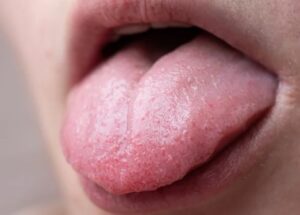The human tongue is a remarkable organ, vital for speech, taste, and overall oral health. But sometimes, it can be prone to minor disruptions, like the appearance of small, painful bumps on its surface, commonly referred to as “liars bumps.” These tiny bumps, although harmless in most cases, can be uncomfortable and even concerning.
In this article, we will delve into the world of liar bumps on your tongue, exploring their causes, potential implications, and effective treatments.
Video Credits:- Teeth Talk Girl
What Causes Liars Bumps on Your Tongue?
Liars bumps, medically known as transient lingual papillitis (TLP), are small, painful bumps that can appear on the surface of your tongue. Despite the popular belief that they occur as a result of telling lies, there is no concrete evidence to support this notion. Lie bumps are not caused by dishonesty; rather, their origins are more closely related to the following factors:
Irritation: Liars bumps often develop as a result of irritation to the tiny, sensitive papillae on the tongue’s surface. This irritation can be caused by a variety of factors, including hot and spicy foods, acidic substances, or even accidental biting of the tongue.
Stress: High levels of stress or anxiety may also contribute to the development of liars bumps. The exact mechanism is not fully understood, but it is thought to be linked to changes in saliva composition and oral pH.
Are Liars Bumps on Tongue Bad?
In most cases, liars bumps are harmless and self-limiting. They typically resolve on their own within a few days to a week without the need for medical intervention. However, they can be uncomfortable and may cause temporary discomfort, particularly when eating or speaking. If the bumps persist for an extended period or recur frequently, it is advisable to consult a dentist or healthcare provider for further evaluation, as there could be an underlying issue contributing to their occurrence.

What Deficiency Causes Liars Bumps?
Nutritional deficiencies can play a role in the development of tongue issues, including liars bumps. Specifically, deficiencies in vitamin B complex, particularly B12 and folate, may lead to oral problems. A balanced diet that includes a variety of fruits, vegetables, and lean proteins can help prevent such deficiencies and maintain oral health.
Are Liars Bumps a Virus?
Liars bumps are not caused by a virus. They are generally a benign condition linked to local irritation and are not infectious. However, viral infections can lead to other oral issues, such as cold sores or canker sores, which can sometimes be confused with liars bumps due to their similar appearance.
How Do You Treat a Liars Bump on Your Tongue?
While most liars bumps resolve on their own, you can take steps to alleviate the discomfort they cause:
Avoid Irritating Foods: Steer clear of spicy, acidic, or rough-textured foods that can further irritate the affected area.
Practice Good Oral Hygiene: Maintain regular oral hygiene routines, including gentle brushing of your tongue and teeth to prevent bacterial buildup.
Rinse with Saltwater: Gargling with warm saltwater can help reduce inflammation and discomfort. Mix a teaspoon of salt in a glass of warm water and rinse your mouth several times a day.
Over-the-Counter Pain Relief: Over-the-counter oral pain relief gels or rinses may provide temporary relief from discomfort.
Stay Hydrated: Adequate hydration helps maintain oral health and can aid in the healing process.
Conclusion
Liars bumps on the tongue, although often uncomfortable, are generally not a cause for concern. They typically result from local irritation, stress, or nutritional deficiencies and resolve on their own. However, if you experience persistent or recurrent liars bumps, it is advisable to consult a dental professional for a thorough evaluation and appropriate guidance. Maintaining good oral hygiene and a balanced diet can also contribute to overall oral health and reduce the likelihood of developing these pesky bumps in the first place. Remember, honesty may be the best policy, but liars bumps on your tongue are not an indicator of deceit.
